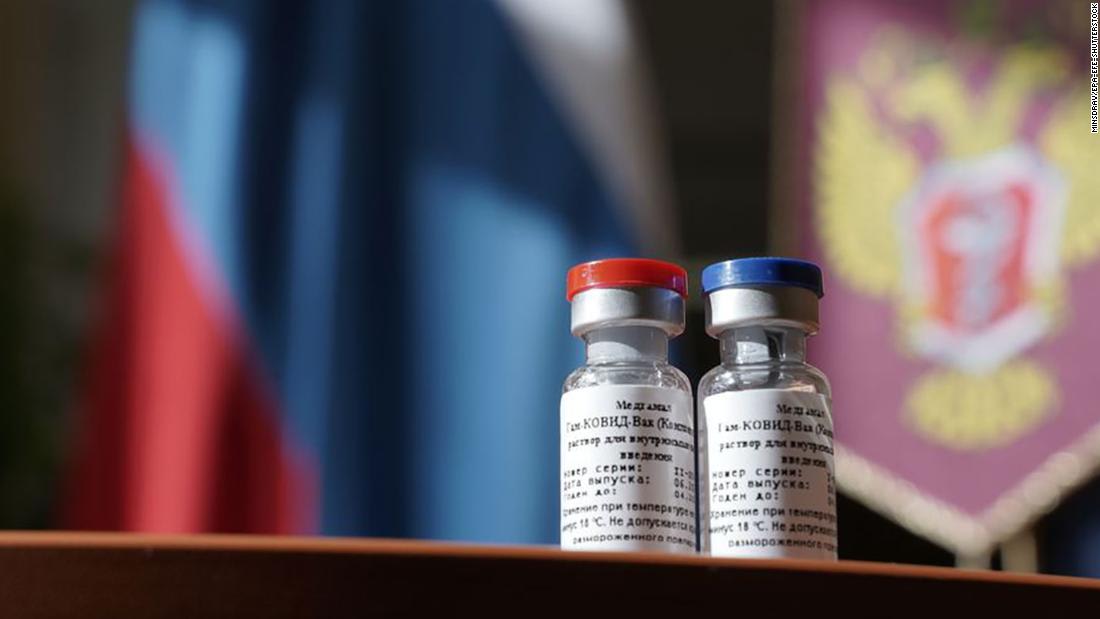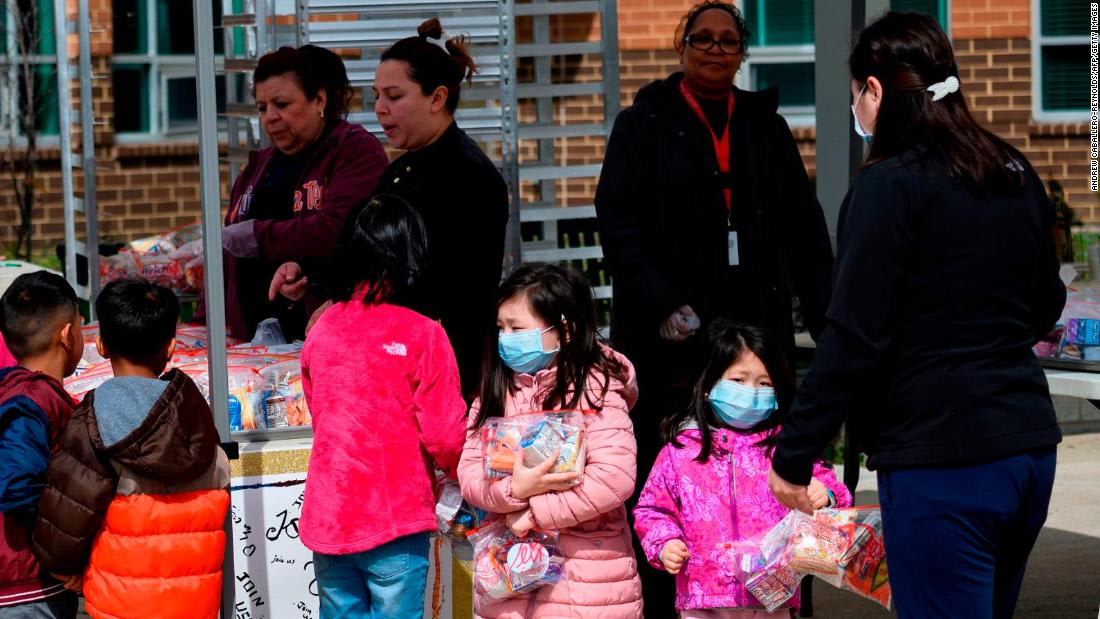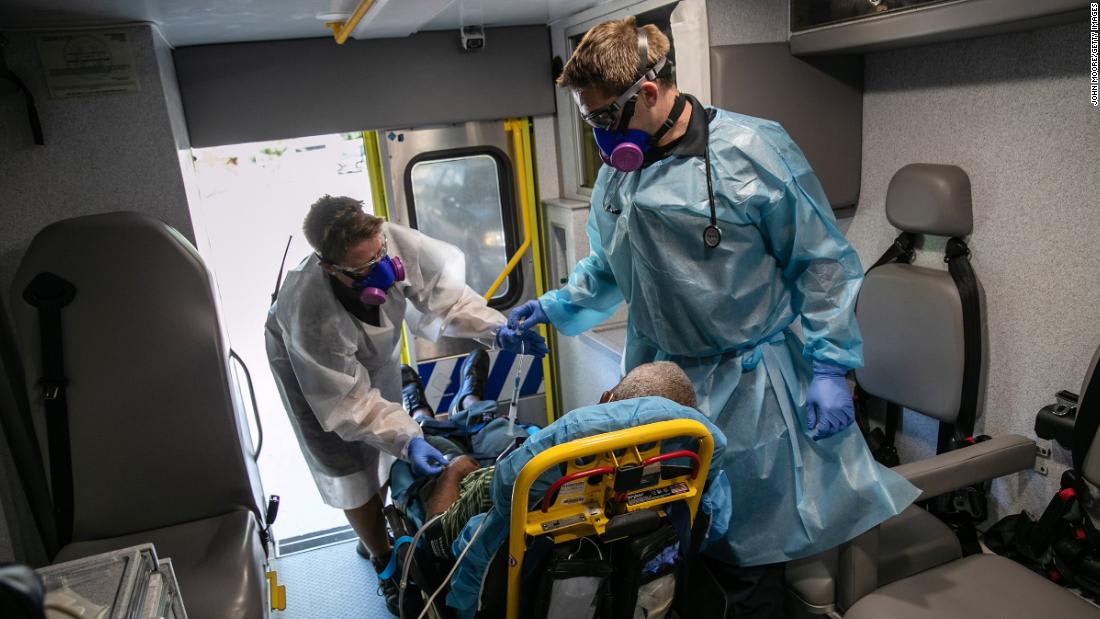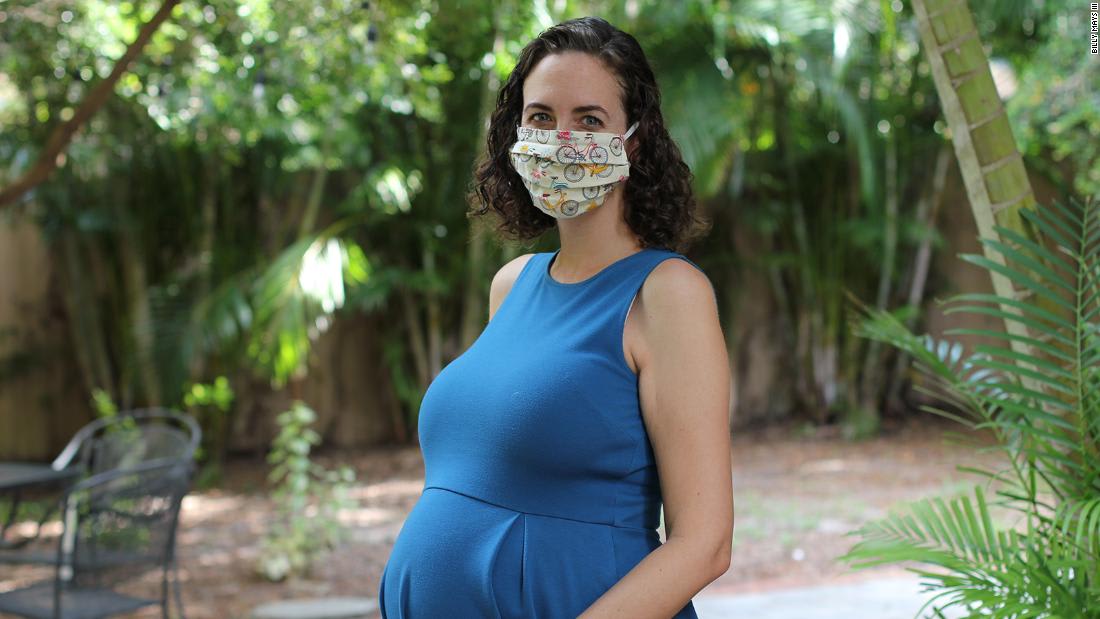5 European countries report drop in cases
From CNN's Vasco Cotovio in Lisbon
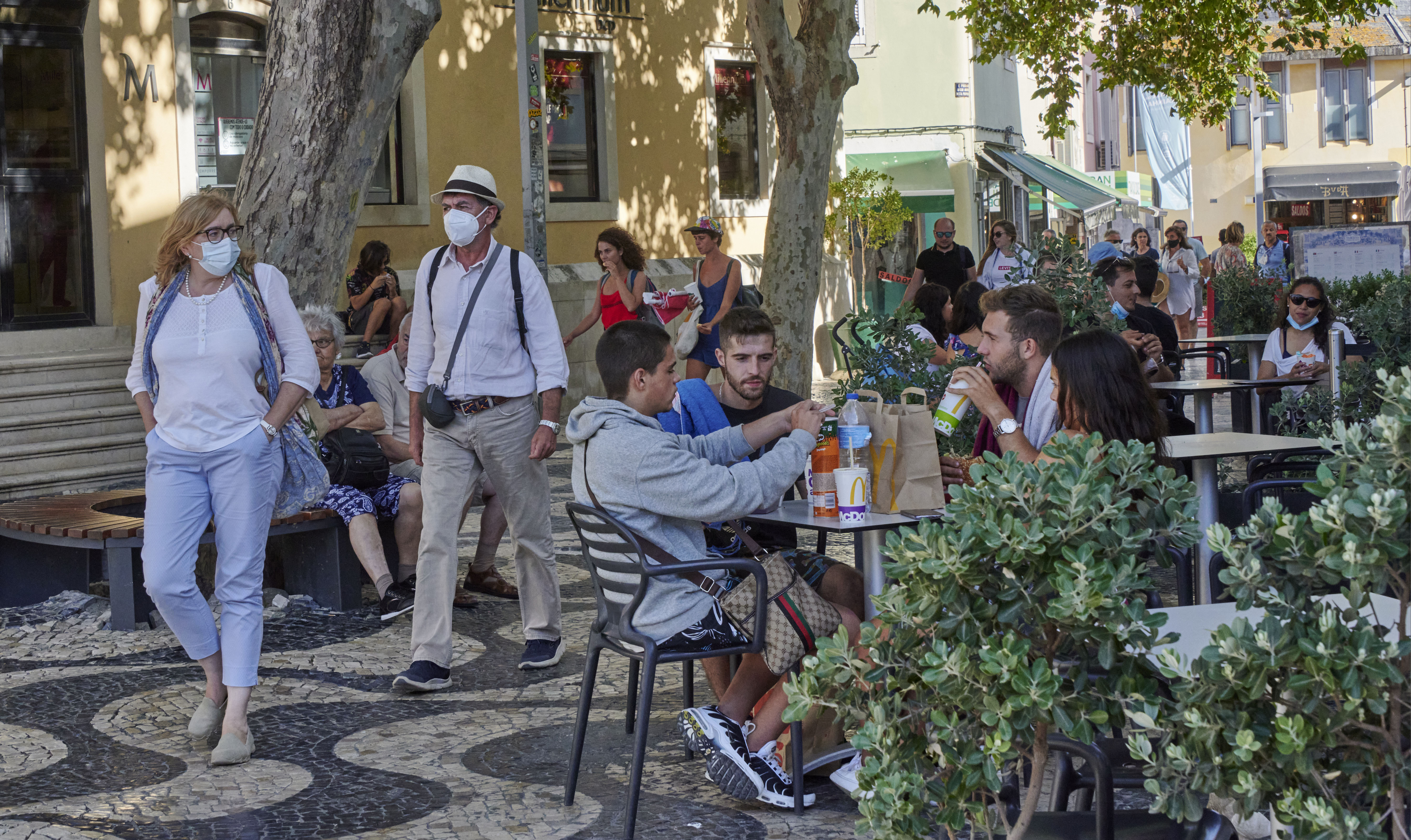 People spend time outside in Cascais, Portugal, on August 9. Horacio Villalobos/Corbis/Getty Images
People spend time outside in Cascais, Portugal, on August 9. Horacio Villalobos/Corbis/Getty ImagesFive European countries have recorded a drop in Covid-19 cases even as most nations in the continent grapple with rising levels of infection, according to a report by the European Centre for Disease Control (ECDC).
Portugal, Sweden, Croatia, Latvia and Slovenia have all recorded a decreasing trend in the number of new infections in the past two weeks, while the rest of the continent has seen an uptick in reported cases per 100,000 people.
The positive signs come as the UEFA Champions League finals kick-off in Lisbon.
UEFA made the decision to host the final stages of the competition in the Portuguese capital in June, attributing the decision to the country’s reputation as a “safe and low-risk Covid-19 destination” at the time, compared to other European nations.
Looking specifically at the Lisbon region, the ECDC report says the 14-day trend for the area also shows a “decrease” in the number of cases.
On Tuesday, Portuguese health authorities reported an additional 120 infections from the novel coronavirus in the entire country, a 0.2% increase on the previous day, for a total of 52,945 cases diagnosed since the outbreak began.
It's just past 1 p.m. in London and 8 a.m. in New York. Here's the latest on the pandemic
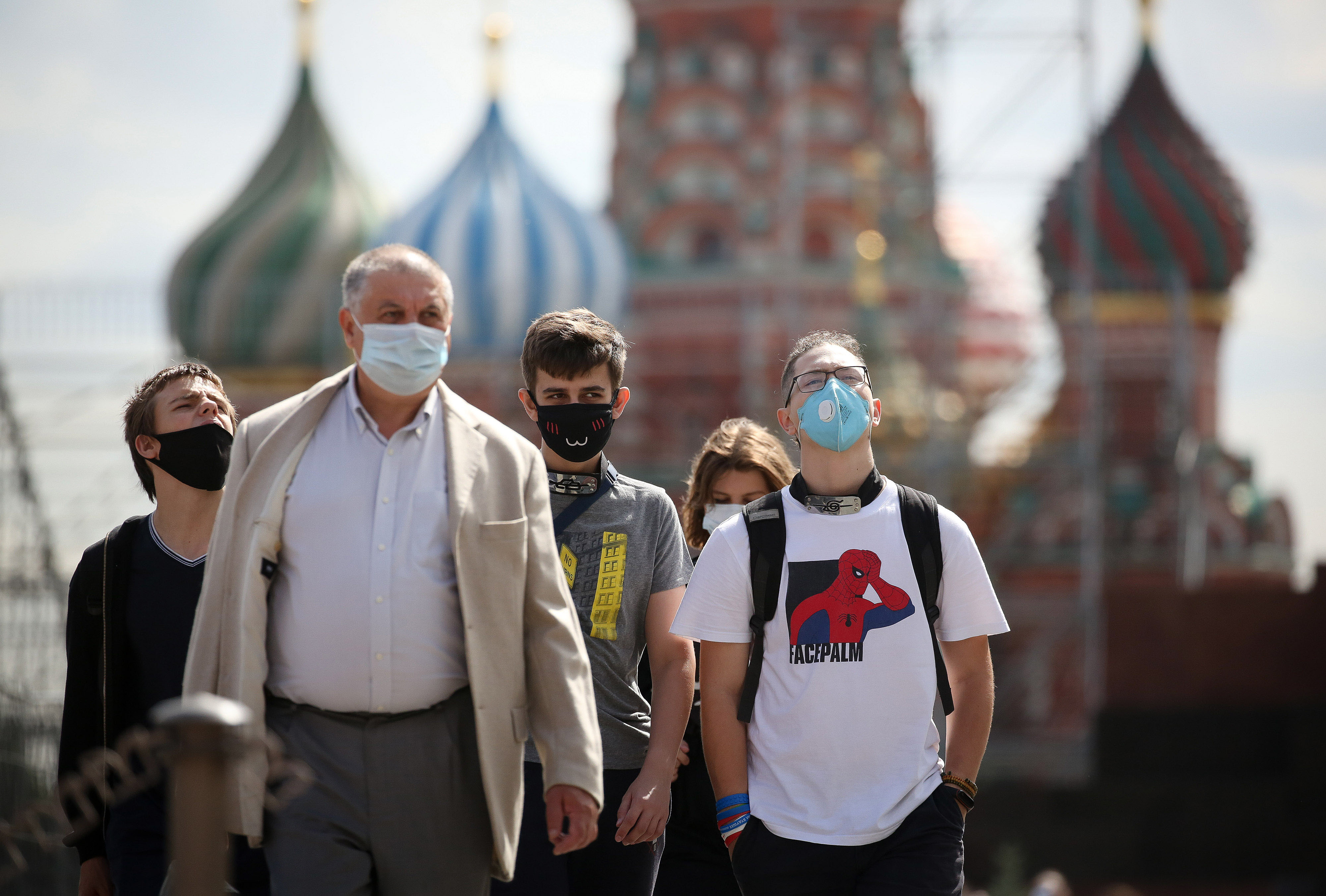 People walk by Moscow's Red Square on August 11. Andrey Rudakov/Bloomberg/Getty Images
People walk by Moscow's Red Square on August 11. Andrey Rudakov/Bloomberg/Getty ImagesThe novel coronavirus has infected more than 20 million people globally and killed more than 742,000. Here are some of today's key developments:
What we know -- and don't know -- about Russia's 'Sputnik V' vaccine
From CNN's Zamira Rahim
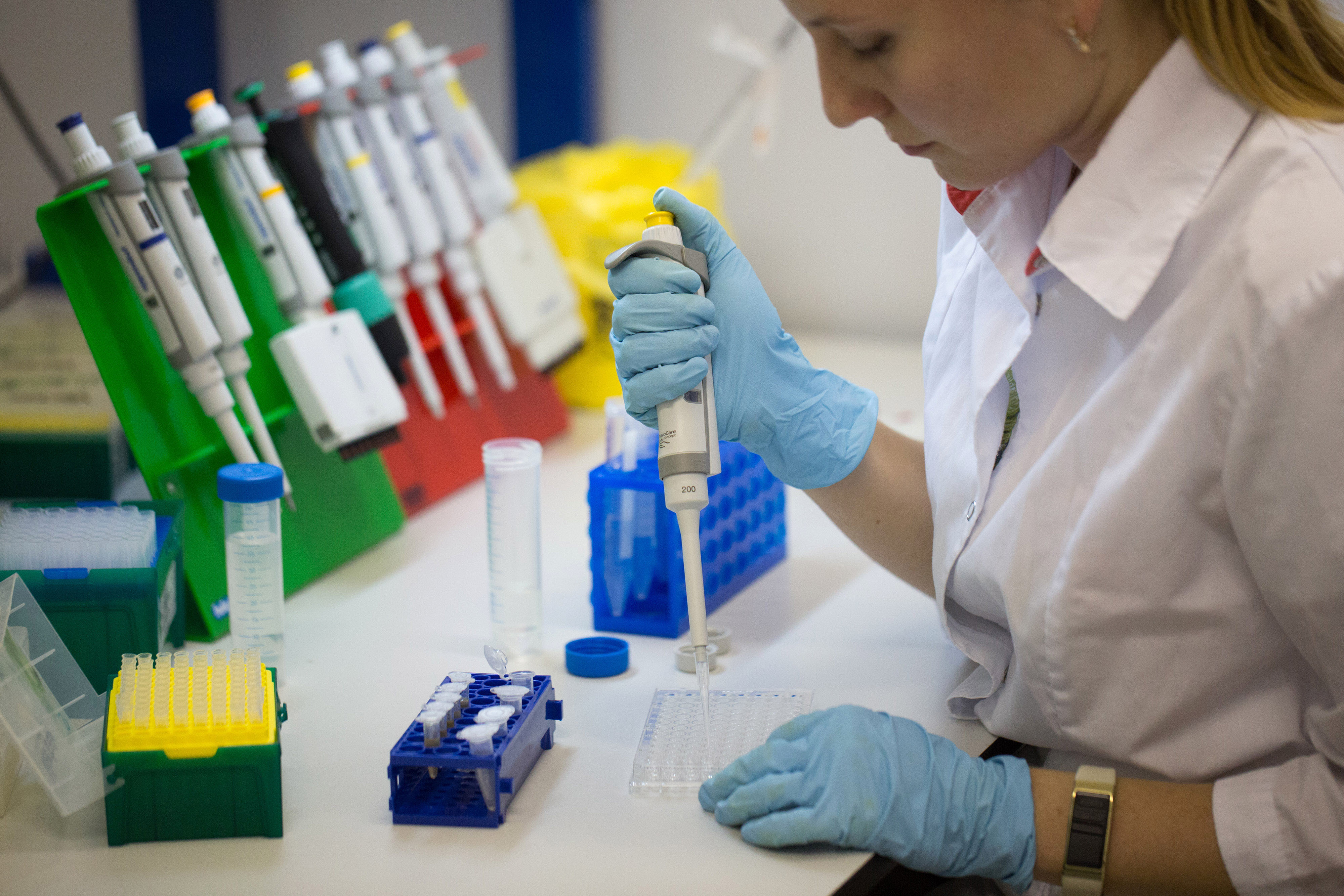 A lab technician in Moscow works on August 6 during production of a Covid-19 vaccine. The vaccine is developed by the Gamaleya National Research Center for Epidemiology and Microbiology and the Russian Direct Investment Fund (RDIF). Andrey Rudakov/Bloomberg/Getty Images
A lab technician in Moscow works on August 6 during production of a Covid-19 vaccine. The vaccine is developed by the Gamaleya National Research Center for Epidemiology and Microbiology and the Russian Direct Investment Fund (RDIF). Andrey Rudakov/Bloomberg/Getty ImagesRussia raised eyebrows on Tuesday when it announced the world's first approved coronavirus vaccine for public use.
President Vladimir Putin says his own daughter has already received it, but testing is yet to be completed and experts are skeptical about how quickly the vaccine has been registered.
Here's a summary of what we know -- and don't know -- so far.
Is the Russian vaccine safe and effective?
The short answer is that we don't know. Russia has released no scientific data on its vaccine testing and CNN is unable to verify claims about its safety or effectiveness. But Russia says the vaccine has passed through Phase 1 and Phase 2 trials which were completed on August 1.
A Phase 3 trial on more than 2,000 people only began today. Typically Phase 3 trials are conducted on tens of thousands of people.
We do not have any information whatsoever on whether this is safe," Keith Neal, Emeritus Professor of the Epidemiology of Infectious Diseases, University of Nottingham, told CNN.
How did Russia pull this off so quickly?
In April, Russia enacted a law which eliminated the need for a Phase 3 vaccine trial before approval.
Approval now means the coronavirus vaccine can be distributed even as Phase 3 tests get underway -- though practically speaking, mass-manufactured doses aren't expected to be ready for weeks.
"They're not as far ahead as other vaccines," Neal said, noting that Moderna and Oxford's vaccines have already begun Phase 3 trials. Critics say Russia's haste is partly due to political pressure from the Kremlin, which is keen to portray the country as a global scientific force.
Read our full Q and A here:
How to tell if your child is sick from Covid-19, based on pediatricians' advice
From CNN's Sandee LaMotte, Katia Hetter, Kristen Rogers and Ryan Prior
Are parents really supposed to be reassured by all this talk about "mild" cases of Covid-19 in children? What about the unfortunate "few" youngsters who have died or come down with a strange and severe associated illness?
No parent wants to take the odds that their child might be the exception to the rule.
"It's not fair to say that this virus is completely benign in children," he said.
As a number of schools and universities across the country have begun classes or are moving forward with plans to begin full or partial in-person instruction in the coming weeks, fears among families are on the rise.
The question looms: Will our children be safe?
Read more:
Texas is ramping up anti-virus measures as state cases soar past 500,000
From CNN's Madeline Holcombe
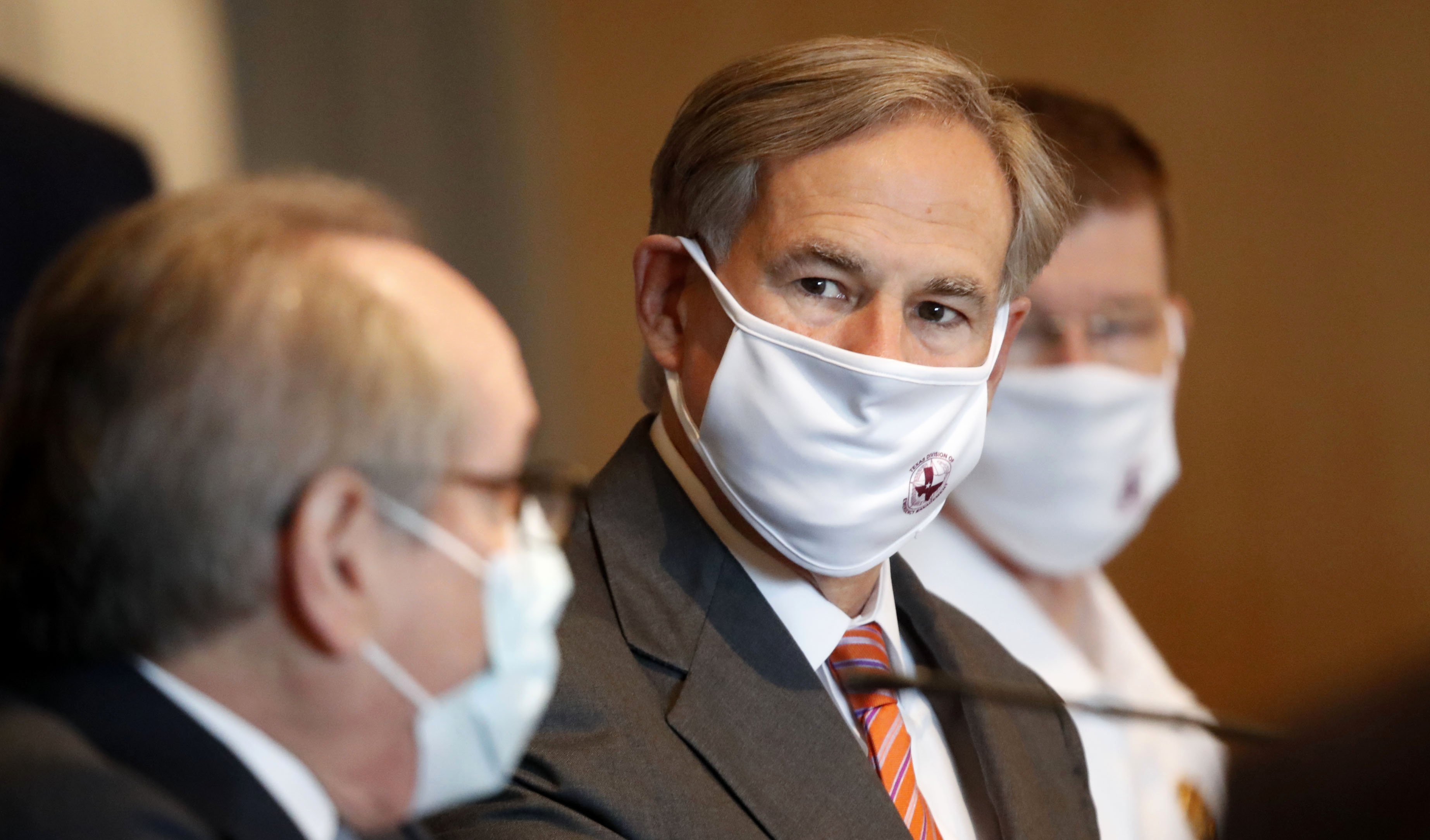 Texas Gov. Greg Abbott, center, listens to Dr. Daniel Podolsky on August 6 during a news conference in Dallas. LM Otero/AP
Texas Gov. Greg Abbott, center, listens to Dr. Daniel Podolsky on August 6 during a news conference in Dallas. LM Otero/APAs Texas soars past 500,000 Covid-19 cases, state officials are redoubling their efforts to get residents to wear masks and practice social distancing, after suggesting that the surge has been driven by people letting their guard down.
Texas has been at the center of the resurgence of coronavirus cases along with California and Florida, which are both reporting thousands of new daily cases. Though Texas officials initially came under scrutiny for downplaying the severity of the virus' spread and acting slowly to pull back plans for reopening, Abbott said during a news conference Tuesday that the state is ramping up distribution of personal protective equipment and encouraging Texans to wear masks and socially distance.
The bottom line is Texans realized how dangerous Covid-19 can be," Abbott said.
Read more:
German Health Minister blasts Russian Covid-19 vaccine
CNN's Fred Pleitgen in Berlin
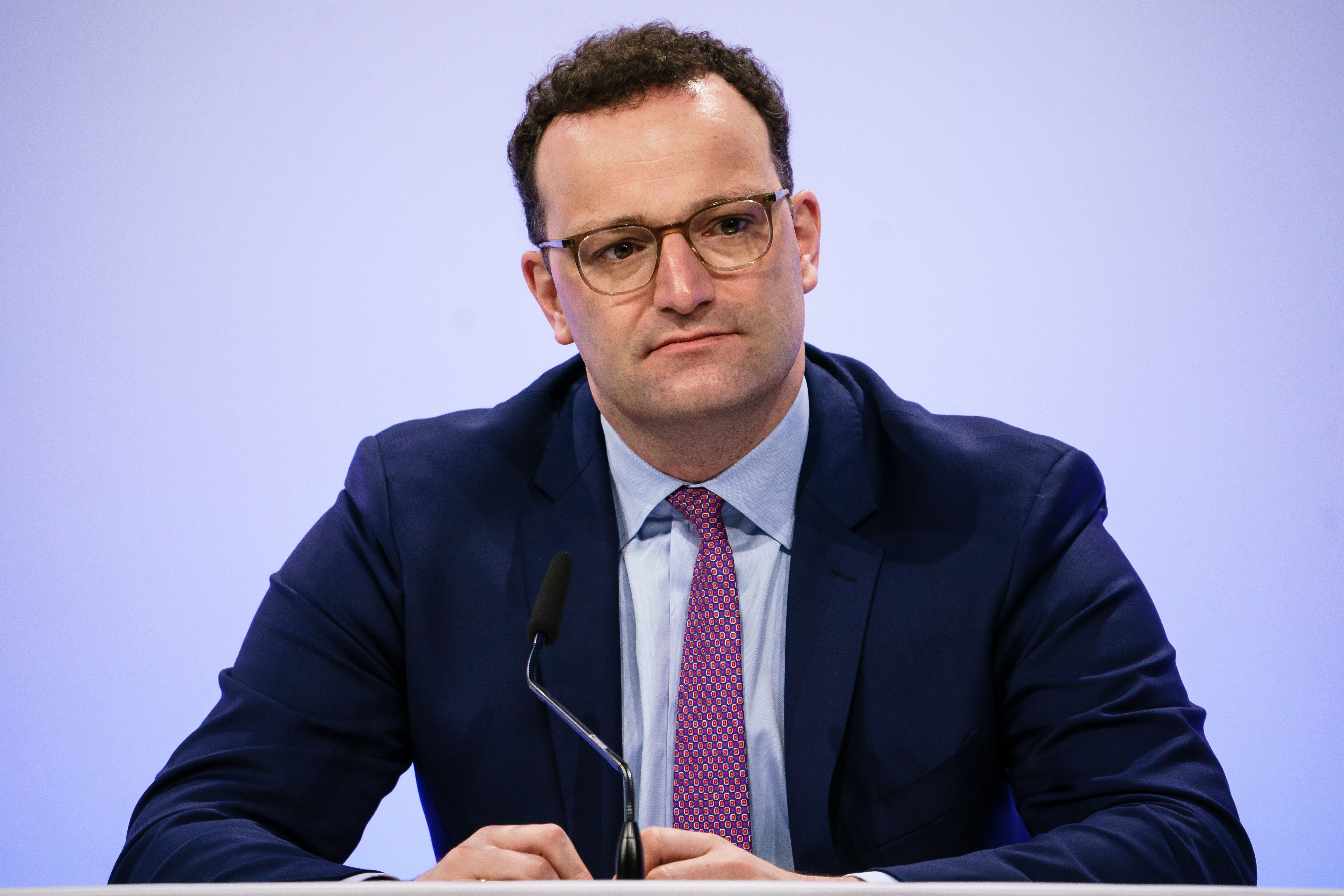 Germany's health minister, Jens Spahn, attends the launch of a government-developed Covid-19 tracing app in Berlin on June 16. Clemens Bilan/Pool/Getty Images
Germany's health minister, Jens Spahn, attends the launch of a government-developed Covid-19 tracing app in Berlin on June 16. Clemens Bilan/Pool/Getty ImagesGerman health minister Jens Spahn has strongly criticized Russia’s approval of a coronavirus vaccine, saying Moscow is not “transparent” and that a vaccine without proper testing could be “dangerous.”
Spahn made the remarks in a radio interview with the broadcaster Deutschlandfunk.
"To have trust in such vaccine I believe it is important to do the necessary testing even in times of pandemic and to make everything public.”
Spahn criticized what he called Russian authorities’ lack of transparency.
Russia approved the vaccine before Phase 3 trials began Wednesday.
Moscow has released no data from the Phase 1 and 2 trials and CNN is unable to verify the vaccine's safety and effectiveness.
Hong Kong records 62 new Covid-19 infections
From Vanesse Chan and Vanessa Yung
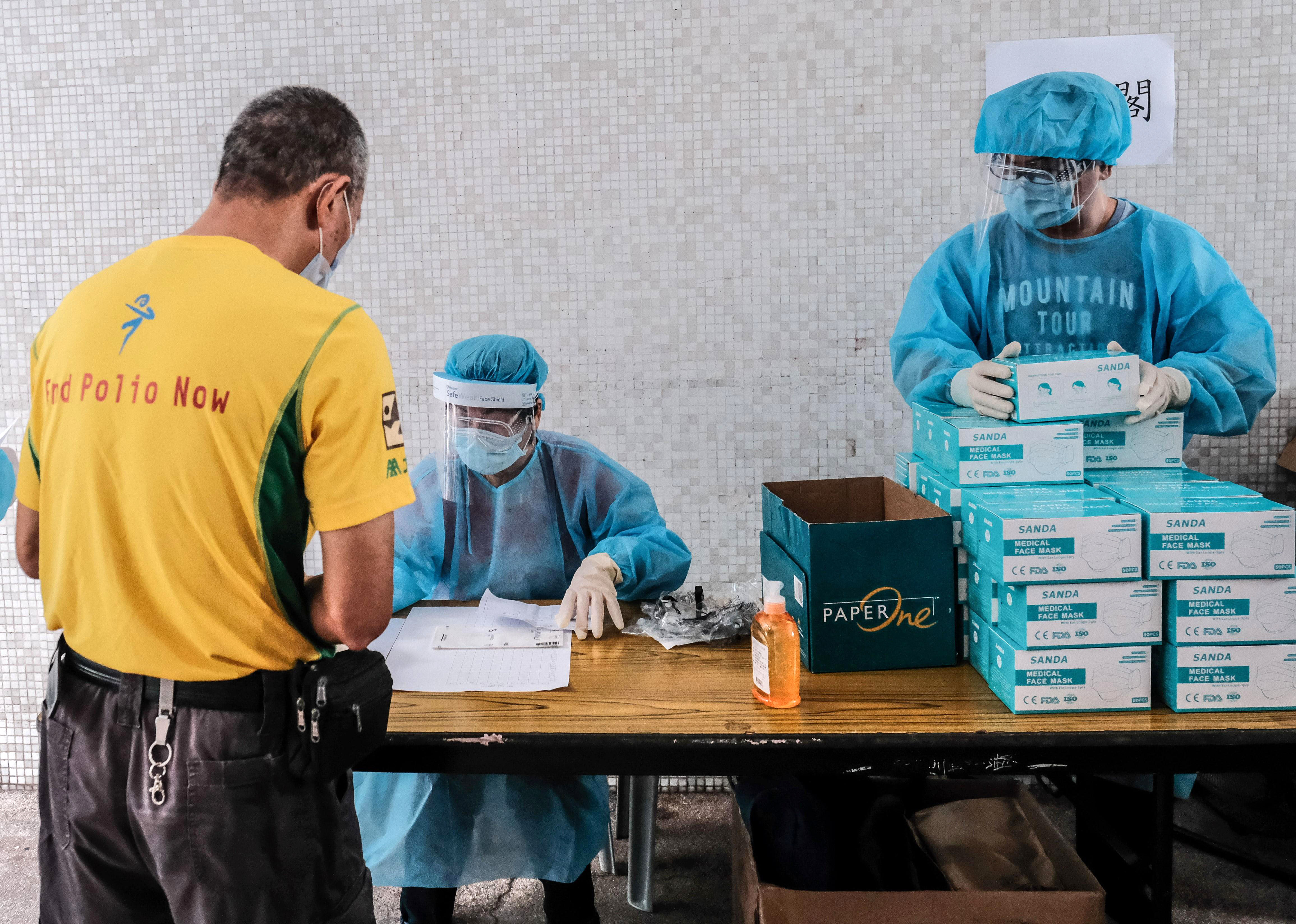 Medical workers hand out Covid-19 test kits at a residential block in Hong Kong on August 7. Qin Louyue/China News Service/Getty Images
Medical workers hand out Covid-19 test kits at a residential block in Hong Kong on August 7. Qin Louyue/China News Service/Getty ImagesHong Kong reported 62 new coronavirus cases on Tuesday, including 61 local infections, according to a daily health briefing held on Wednesday.
Among the local infections, 33 cases were linked to previous ones, while 28 were deemed untraceable, said Dr. Chuang Shuk-kwan of the health department's Communicable Disease Branch.
The city has reported 4,243 total cases of the virus.
In addition, six deaths were recorded on Tuesday, bringing the death toll in the territory to 63.
Belgium makes face masks compulsory in Brussels region
From CNN's Barbara Wojazer
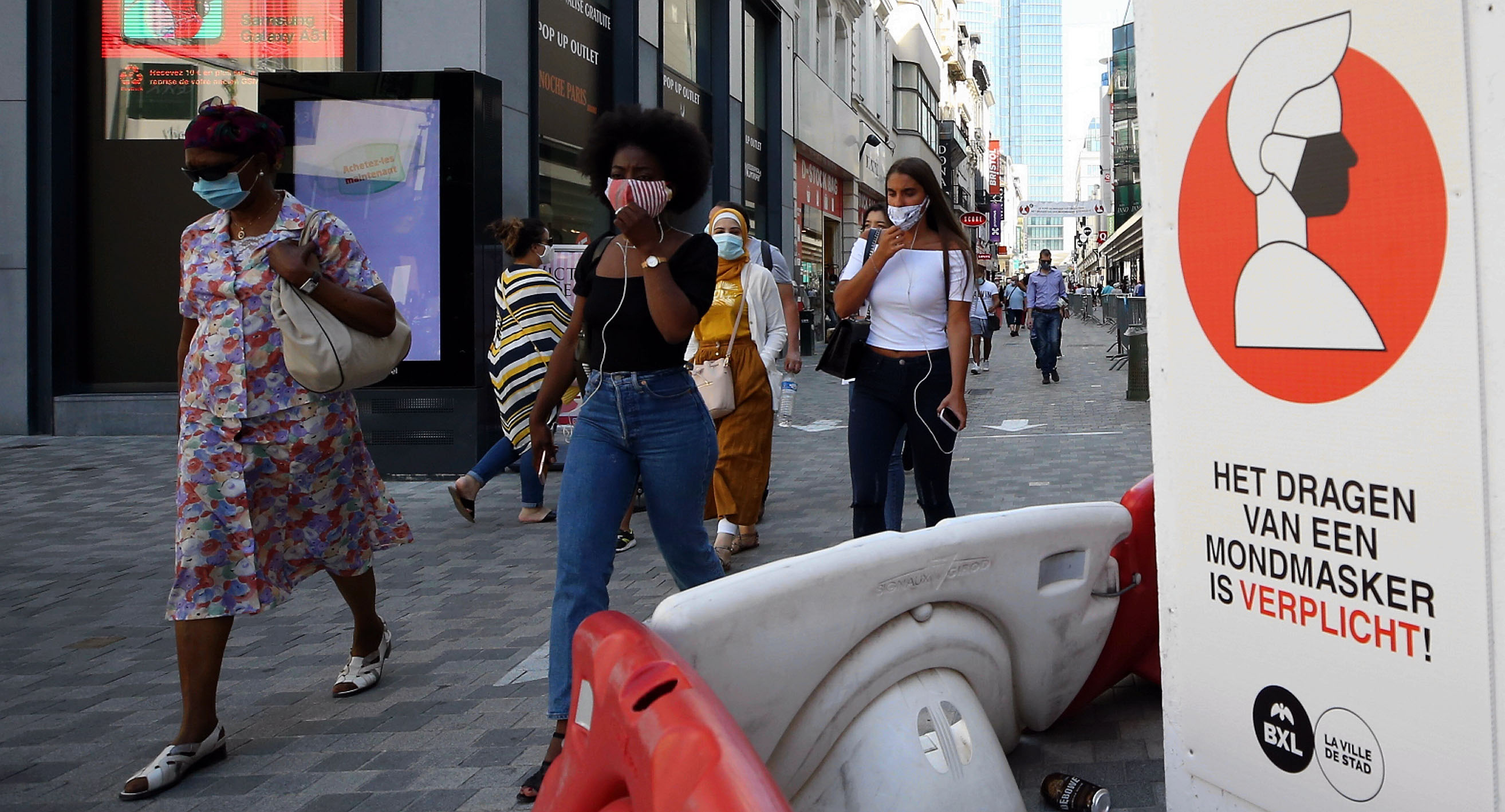 People walk in Brussels, Belgium, on August 4. Dursun Aydemir/Anadolu Agency/Getty Images
People walk in Brussels, Belgium, on August 4. Dursun Aydemir/Anadolu Agency/Getty ImagesFace masks have been made compulsory in Belgium's Brussels region, according to local authorities. The new rule came into effect Wednesday.
The rule applies to anyone aged 12 years or older, "in public spaces, as well as on private premises accessible to the public."
The decision comes as cases in the region crossed the threshold of 50 daily cases per 100,000 people, the local government said.
Weekly infections in Belgium rose at the end of July and officials in countries across Europe are scrambling to prevent a second wave of the virus.
Belgium has 75,008 cases of coronavirus according to Johns Hopkins University.
The highs and lows of being pregnant during the pandemic
From CNN's Katie Hawkins-Gaar
In early February, my partner and I discovered that I was pregnant.
Looking back, that feels like one of the last big milestones of the Before Times — a wonderfully blissful and uncomplicated period. I'd skimmed a few headlines about a scary-sounding disease called Covid-19 but didn't worry too much about it.
The virus seemed so far away on the other side of the globe. My biggest concern was adjusting to the idea of carrying a child.
Our first ultrasound was scheduled for March 3. At eight weeks, our baby didn't yet look like a baby. According to the pregnancy website we consulted each week, she was only as big as a raspberry.
Still, she had a heartbeat -- and when we heard it, my partner, Billy, excitedly grabbed my hand. We laughed in surprise and flashed giant smiles at the ultrasound technician, who grinned back at us.
That was our last prenatal appointment of the Before Times.
Read more:

 5 years ago
690
5 years ago
690 